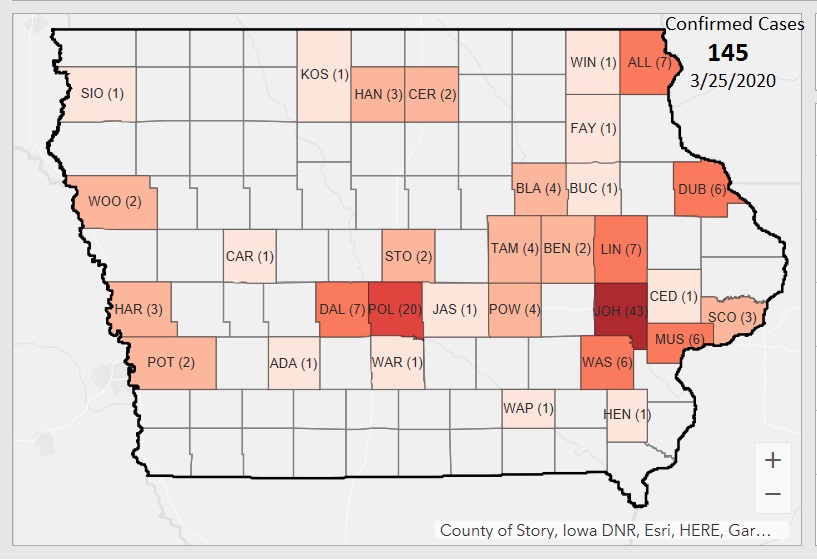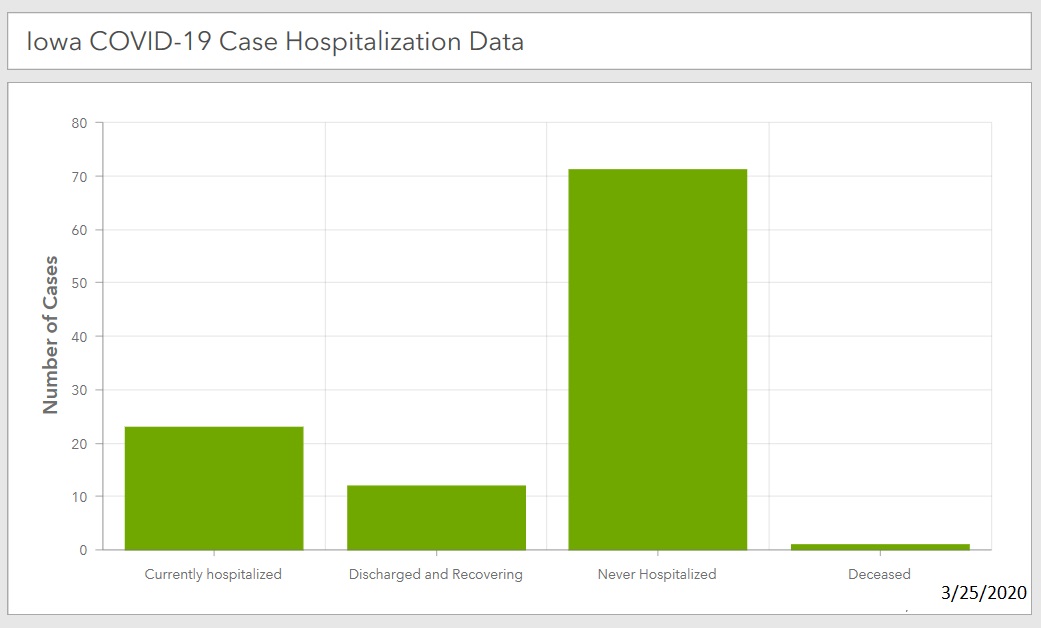Gov Kim Reynolds continues to encourage Iowans to wash their hands, avoid gathering in groups of more than 10, and stay home when they’re feeling ill. Doing that will work to avoid a “shelter in place” order in Iowa.
At her daily press conference, Reynolds listed the metrics she is watching daily: the percentage of population 65 years and older; the percentage of identified cases requiring hospitalization; the rate of infection per 100,000 Iowans in the past 14 days; and the number of outbreaks in settings like long term care facilities where our older populations and Iowans with underlying health conditions live.
She said many of the orders included in other states with “shelter in place” orders have already been done in Iowa, like closing schools and some businesses; implementing work from home and distance learning; and reducing gatherings of more than 10 people. “The significant steps we’ve taken will help mitigate the spread of the virus, protect the most vulnerable Iowans; and reduce the risk of overwhelming the healthcare system,” Reynolds said.
She added, “It’s important, also, that we keep Iowa open for business in a responsible way that protects the health of our people and our economy.”
Later in the press conference she included keeping supply chains functioning in order to be sure medical supplies and food are available.
Reynolds listed steps families and caregivers of persons at higher risk for COVID-19 can do to help that person: Know the medication he or she is taking and help make sure he has enough on hand; monitor any medical supplies needed and create a back-up plan; and stay in regular contact to know if there’s a way to help or if the person’s health changes.
“Now is a critical time when each of us can make a difference on the impact COVID-19 will have in Iowa,” Reynolds said. “We all have a role and a responsibility to mitigate the spread of the virus and protect the health of our fellow Iowans. Please, do your part and help us all protect our vulnerable.”
During a Q & A period, the governor said the state Department of Education has a task force looking at ways to implement online learning in K-12 schools. She would not answer if the April 13 date for students to return to school will be extended, but that conversations are ongoing.
Also on Wednesday, the Iowa Department of Public Health (IDPH) announced it has been notified of 21 additional positive cases of Iowans with COVID-19, for a total of 145 positive cases. There have been a total of 2,578 negative tests to date, which includes testing reported by the State Hygienic Lab and other labs.
According to IDPH, the locations and age ranges of the 21 individuals include:
Allamakee County 1 middle-aged adults (41-60 years)
Benton County, 2 middle-aged adults (41-60 years)
Hancock County, 1 middle-aged adults (41-60 years)
Johnson County, 4 adults (18-40 years), 1 middle-aged adult (41-60 years), 1 older adult (61-80 years)
Linn County, 1 middle-aged adult (41-60 years)
Muscatine County, 1 adult (18-40 years)
Polk County, 3 older adults (61-80 years)
Poweshiek County, 2 older adults (61-80 years)
Scott County, 2 middle-aged (41-60 years)
Washington County, 2 adults (18-40 years)

